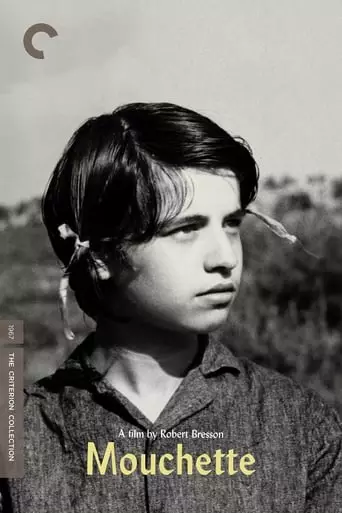
Mouchette (1967) Watch Online Free
A young girl living in the French countryside suffers constant indignities at the hand of alcoholism and her fellow man.
Mouchette (1967), directed by Robert Bresson, is a poignant exploration of suffering and despair through the eyes of a young girl living in rural France. The film follows Mouchette, a teenager burdened by the oppressive weight of her circumstances: her mother is bedridden and dying, her father is an abusive alcoholic, and she is left to care for her infant brother while facing ostracism at school. The narrative unfolds in a stark, minimalist style, characteristic of Bresson’s filmmaking approach.Mouchette’s life takes a brief turn when she attends a local fair, where she experiences a fleeting moment of joy while riding bumper cars with a boy. However, this moment is short-lived as her father harshly interrupts their interaction. Later, while seeking refuge from a storm in the woods, Mouchette encounters Arsène, an alcoholic poacher. Initially appearing helpful, Arsène ultimately assaults her, further deepening her trauma. Following this harrowing experience, Mouchette returns home to find her mother has died, leaving her to navigate the world alone.The film culminates in a tragic and symbolic ending as Mouchette rolls down a hill into a river, suggesting her desire for escape from the relentless cruelty of life. This act can be interpreted as both a rejection of her suffering and an assertion of agency in a world that has offered her none.
Bresson’s Mouchette is rich in themes that resonate deeply with audiences, exploring the intersections of innocence, cruelty, and societal neglect. The film’s stark realism and emotional depth challenge viewers to confront uncomfortable truths about human existence.
Mouchette has left an indelible mark on cinema due to its unflinching portrayal of human suffering and its minimalist aesthetic. It challenges viewers to engage with difficult themes without resorting to melodrama or sentimentality. The film’s impact extends beyond its narrative; it invites reflection on social issues such as poverty, abuse, and the plight of the marginalized.
Watching Mouchette is an emotionally taxing experience that leaves viewers grappling with feelings of sadness, anger, and empathy for Mouchette’s plight. The film’s raw depiction of suffering serves as both a mirror reflecting societal failures and an indictment of human cruelty. Many may find themselves reflecting on their own lives and relationships after witnessing Mouchette’s tragic story.The haunting imagery combined with Bresson’s minimalist approach creates an atmosphere that lingers long after viewing; you may feel compelled to question societal norms regarding compassion and responsibility toward those who suffer silently around us. Ultimately, Mouchette is not just a story about one girl’s life; it is an exploration of universal themes that resonate deeply within the human condition—inviting viewers not only to feel but also to act in response to injustice in their own lives.
